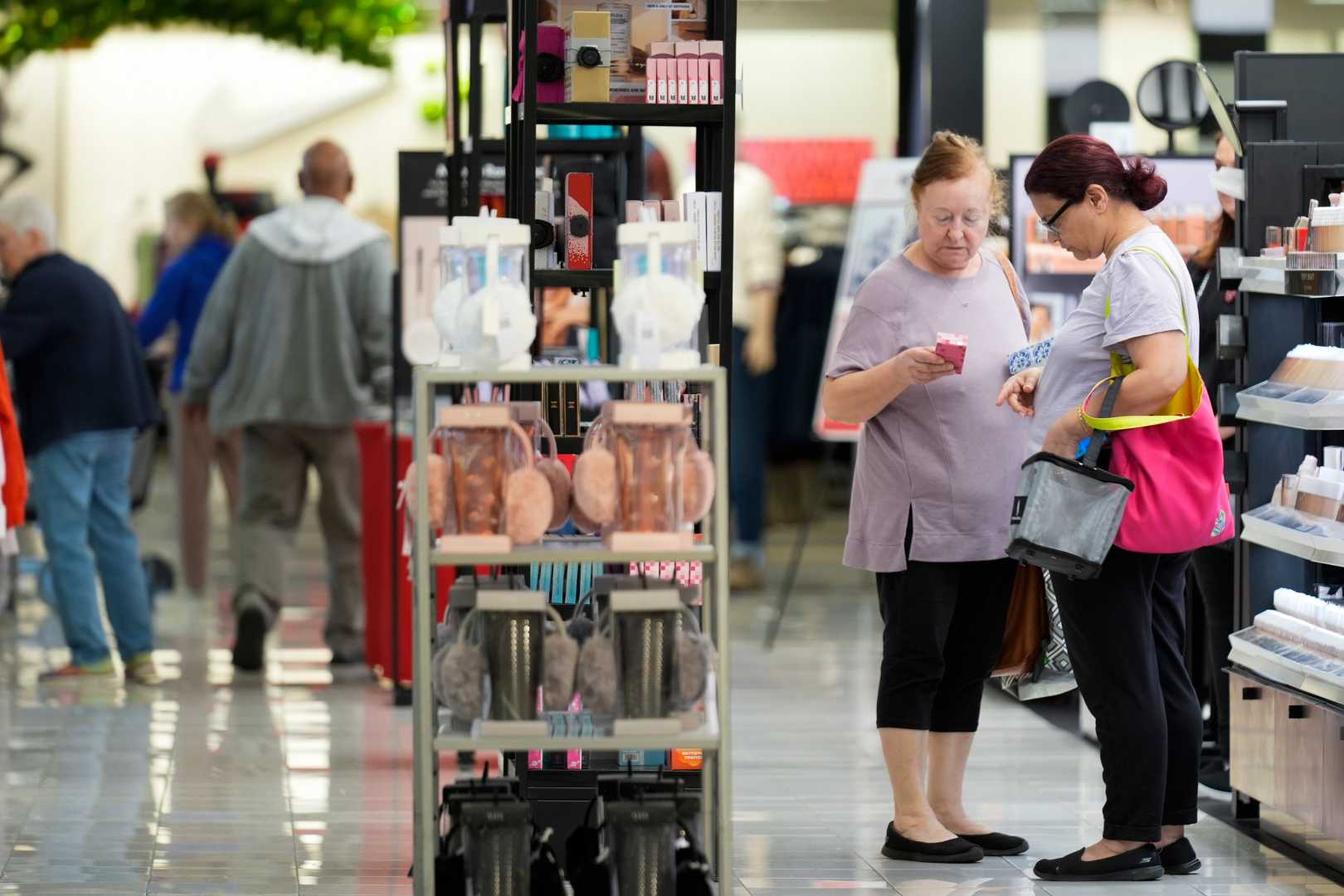Business
American Consumers Face Economic Challenges Amid Tariffs and Growing Uncertainty

ATLANTA, Ga. — America’s economic landscape is facing significant challenges as inflation and tariffs threaten consumer confidence. A recent analysis reveals that consumer sentiment has plunged amid rising debt and economic anxiety, prompting a pullback in spending that could have widespread implications.
High inflation and soaring interest rates are contributing to an increasingly volatile environment for consumers, who are now expressing concern over job security and financial stability. Chris Rupkey, chief economist at FwdBonds, remarked, “The consumer sees darkening clouds for the economy ahead,” following reports indicating a mere 0.1% rise in inflation-adjusted consumer spending for February and a 12% drop in consumer sentiment in March.
Consumer spending drives more than two-thirds of the nation’s economic activity; hence, any falter in this area can lead to cascading economic consequences. “Consumers need both willingness and ability,” said Dan North, senior economist at Allianz Trade North America. “The willingness (consumer confidence) is lacking, and the ability (income) is diminishing.”
Despite the unemployment rate remaining low and personal income posting solid gains for two consecutive months, real income after taxes has only increased by a modest 1.8% year-over-year. North noted, “It’s pretty weak,” indicating that both disposable income and confidence are diminishing, likely leading to decreased core spending.
Shannon Grein, an economist at Wells Fargo, emphasized the uncertainty of the current economic climate, questioning whether the recent decline in consumer spending is a response to recessionary fears or merely a pause after a robust purchasing surge at the end of the previous year. While real spending numbers in January and February were underwhelming, she cautioned against prematurely concluding that consumers are fully retreating. “It’s too soon to write off the consumer,” she stated, highlighting that wages continue to outpace inflation thanks to a still-tight labor market.
However, Grein underscored a growing divide within consumer demographics. Younger and lower-income consumers are increasingly living paycheck to paycheck and may be disproportionately affected by rising tariff costs. “Debt balances and delinquency rates are climbing among those demographics who have maxed out their credit,” she explained. Fortunately, the mortgage market remains stable, with delinquencies returning to pre-COVID levels.
With economic uncertainty looming, businesses and households are adopting a “wait-and-see” approach, which Grein believes could lead to an inevitable slowdown in growth. “I am bracing for a slowdown, just based on this wait-and-see behavior,” she cautioned.
Victor Yarbrough, co-owner of Brough Brothers Distillery, the first Black-owned bourbon distillery in Kentucky, is closely monitoring these developments. With his company situated in Louisville’s economically challenged West End, he observes increasing food insecurity among his community. “We’ve seen a lot more people carrying food baskets with each food drive,” he said. “For many here, times are getting harder.”
His distillery is also undergoing a significant expansion and was previously planning to increase international distribution, but retaliatory tariffs from the European Union and Canada have disrupted these plans. “If people don’t have jobs, then they can’t spend,” Yarbrough noted, stressing that luxury goods, like bourbon, are not viewed as necessities.












